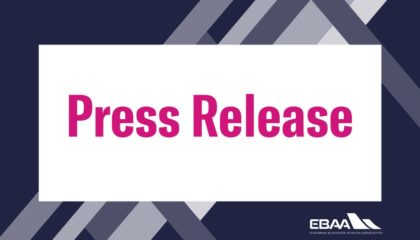
Dealing with internet scams
The internet and the ability to work online is a blessing where most the work is being conducted remotely. Imagine that the COVID19 Pandemic had occurred 20 years ago in a time when we were not so well connected. However, there is a downside, scamming and internet fraud is on the rise.
Over the past years, we at EBAA have seen users and employees within the Business aviation industry being hit by scams and fraudsters regardless of the many procedures and protocols our members put in place to combat fraudulent behaviour. Scamming is a global industry and there are various scams that we want to warn our members and non-members of and provide some advice:
Google Ad scam
Fake companies advertise in Google Ads adverts for products in high demand. The potential customer searching and clicking on the Ad will end up on a professional-looking website which is generally a scrapped website from a legitimate company. In the case of Business aviation, this was a fake broker company called beaverjet.net who used photos and text stolen from a legitimate website. The customer would receive great “customer service” until the moment he or she “booked” a flight and send the funds and the contact person disappeared.
This is a scam not limited to Business aviation and one that is out there in various shape or forms. The main things to help you are:
- Be sceptical,
- Talk to the people behind the site if a large amount is involved,
- Check on the websites of reputable associations like ours, other national associations or the Air Charter Association if companies are members
- Check if you have references in your network
Phishing
The EBAA and EBACE names have been abused in the last few weeks by scammers are offering “Membership lists” or “Ebace attendants lists”.
EBAA does not, and will never, sell member or attendee details.
The e-mail is trying to convince you to open the attached Excel file which is used for Username and Password phishing purposes.
To prevent this: only open attached files from known senders and if the text that goes with the mail makes sense. If not check first with the sender if this is a safe attachment.
Vacancy Scam
This is a scam that is not specific to aviation but more to global jobs in general. All the jobs are generally far away from where you live hence the need to connect online. The scammers are generally looking for two things: your ID papers and details or will try to get you to make an advance payment for “Visa” or “training”. The jobs seem to be with legitimate companies but the devil is in the details.
Ask yourself these questions:
- Is the recruiter more interested in getting you hyped about the job and in collecting your information than in determining whether your skills qualify you for the job?
- Is the e-mail at a G-mail or other generic account?
- Did the scammers contact you?
Be sceptical: If it sounds too good to be true, it may be. Research a vacancy by going to the website of the company in question and call the company to check if the vacancy is real. Check with people you know in your network if they have contacts at the company.
You should never need to pay: A legitimate job offer does not require you to pay before getting details.
Never share personal information: Do not share credit card or bank account information or provide your social security number. If you do send details after doing all the checks make sure that any passport copies have text identifying the company it is intended for written all over the copy
Changing details scam
Fraudsters are using phishing emails to steal usernames and passwords, allowing them to hack your personal or business email accounts. Your email account is then monitored for an opportunity to intercept an invoice. When you are purchasing goods and awaiting an invoice on email, or if your business is sending an invoice by email.
The email scammers intercept the invoice, change the bank details on it and forward it for payment. Spoofing is used to make the email address seem credible and trustworthy. The recipient pays the invoice thinking it comes from a legitimate source, when in fact the money is paid into the scammers temporary account. Always scrutinise the sender of an invoice, make sure they use the same exact domain as your usual contact. Be wary of any banking detail changes and check this with the sender. When in doubt, call your trusted contact at that company.
In short
For all internet scams out there follow the simple rules: if it is too good to be true it probably is. Use common sense. Talk to people in your network to check if something is real. if you are in doubt as to you are faced with a scam specific to Business aviation, please do not hesitate to contact us at membership@ebaa.org.



